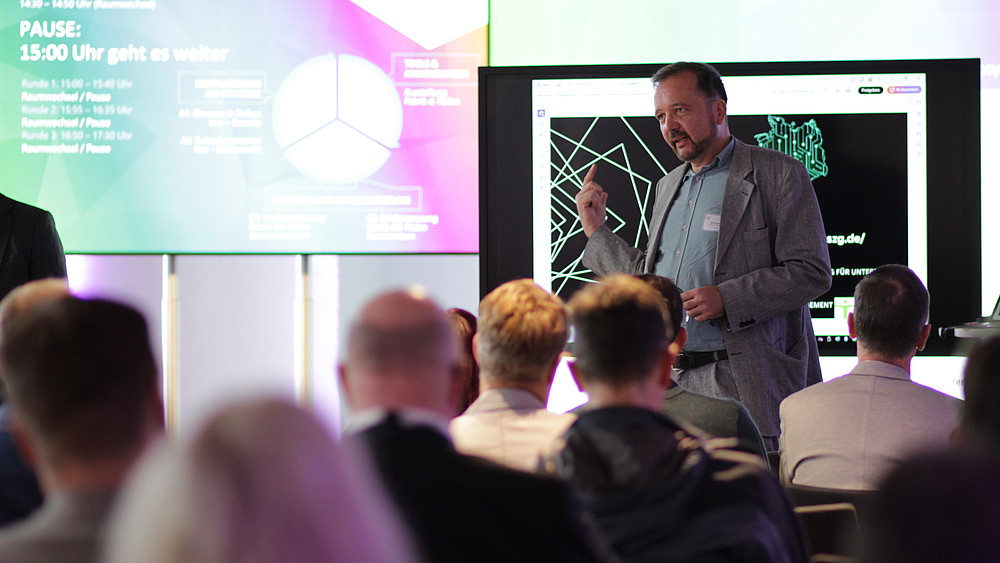At the futureSAX Innovation Forum, the HSZG's DigitalStress team impressively demonstrated what digital change means for the world of work and how companies can benefit from it.

On September 26, 2024, the futureSAX Innovation Forum II took place at the "Fabrik der Fäden" in Plauen. Experts from science and business came together to discuss digital technologies, strategies and innovative applications for the digital transformation under the heading "The future of digitalization". The DigitalStress team from the Institute for Health, Ageing, Work and Technology (GAT) at Zittau/Görlitz University of Applied Sciences was also actively involved.
The DigitalStress team was involved in the following themed workshops:
The futureSAX Innovation Forum II impressively demonstrated how important it is to take a holistic view of digitalization - from technological to social aspects - in order to make companies successful in the future. The DigitalStress team made a valuable contribution to the discussion and further development of solutions.
A more detailed summary of all themed workshops can be found here.